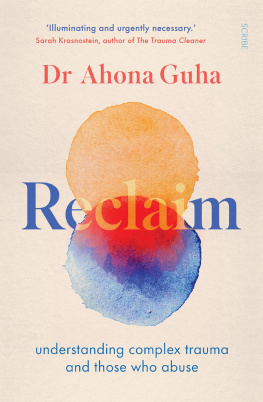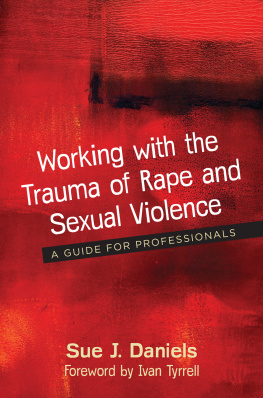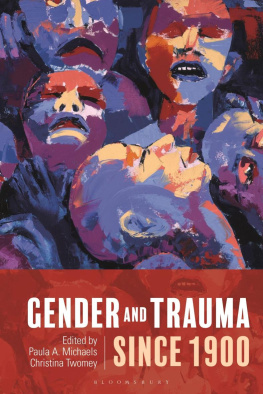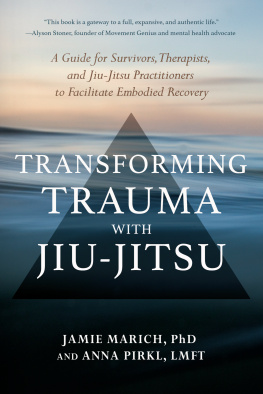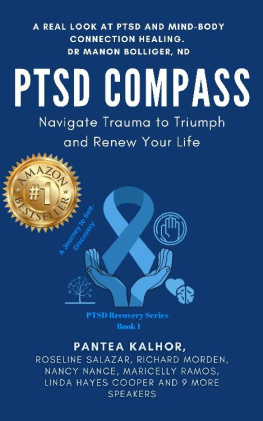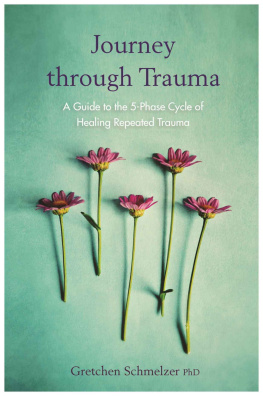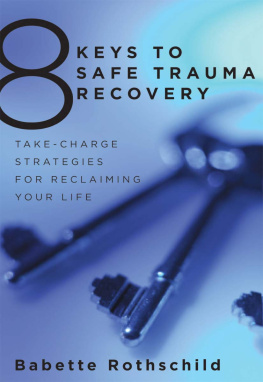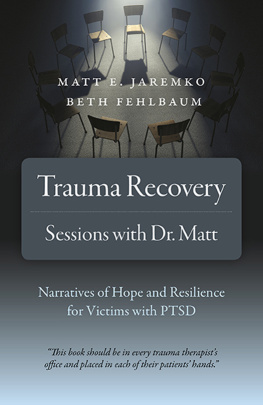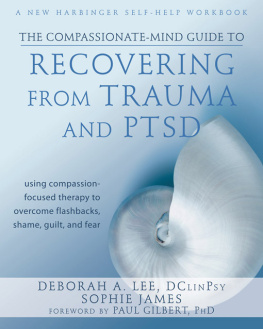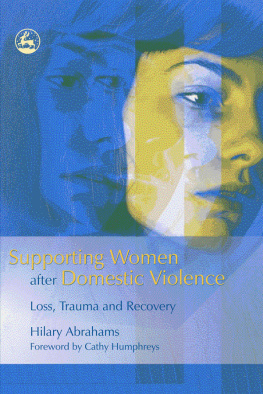TRAUMA AND RECOVERY


Copyright 1992, 1997 by Basic Books,
Epilogue 2015 by Basic Books
A Member of the Perseus Books Group
All rights reserved. Printed in the United States of America. No part of this book may be reproduced in any manner whatsoever without written permission except in the case ofbrief quotations embodied in critical articles and reviews. For information, address Basic Books, 250 West 57th Street, 15th Floor, New York, NY 10107.
Books published by Basic Books are available at special discounts for bulk purchases in the United States by corporations, institutions, and other organizations. For more information, please contact the Special Markets Department at the Perseus Books Group, 2300Chestnut Street, Suite 200, Philadelphia, PA 19103, or call (800) 810-4145, ext. 5000, or e-mail special.markets@perseusbooks.com.
The Library of Congress has cataloged the hardcover edition as follows:
Herman, Judith Lewis, 1942
Trauma and recovery / Judith Lewis Herman.
p. cm.
Includes bibliographical references and index.
1. Post-traumatic stress disorder. 2. Post-traumatic stress disorderTreatment. I. Title.
RC552.P67H47 1992
ISBN 978-0-465-09873-6 (e-book)
10 9 8 7 6 5 4 3 2 1
MORE PRAISE FOR TRAUMA AND RECOVERY

Hermans brilliant insights into the nature of trauma andthe process of healing shine through in every page of this rich and compassionate book.
Lenore Walker, ED.D., Director, Domestic ViolenceInstitute and author of Terrifying Love
Herman links the public traumas of society to those ofdomestic life in this provocative work of psychiatric theory.
Publishers Weekly
I had thought, before I began, that what I had on my hands was an almost excessively masculine tale, a saga of sexual rivalry, ambition, power, patronage, betrayal, death, revenge. But the women seem to have taken over; they marched in from the peripheries of the story to demand the inclusion of their own tragedies, histories, and comedies, obliging me to couch my narrative in all manner of sinuous complexities, to see my male plot refracted, so to speak, through the prisms of its reverse and female side. It occurs to me that the women knew precisely what they were up totheir stories explain, and even subsume, the mens. Repression is a seamless garment; a society which is authoritarian in its social and sexual codes, which crushes its women beneath the intolerable burdens of honour and propriety, breeds repression of other kinds as well. Contrariwise: dictators are alwaysor at least in public, on other peoples behalfpuritanical. So it turns out that my male and female plots are the same story after all.
Salman Rushdie, Shame, 1983
CONTENTS


THIS BOOK OWES ITS EXISTENCE to the womens liberation movement. Its intellectual mainspring is a collective feminist project of reinventing the basic concepts of normal development and abnormal psychology, in both men and women. My mentors in this larger project have been Jean Baker Miller and her colleagues at the Stone Center, and my mother, Helen Block Lewis. The day-to-day practice that gave rise to this book began twenty years ago with the formation of the Womens Mental Health Collective in Somerville, Massachusetts. The collective is still my intellectual home, a protected space within which womens ideas can be named and validated. One member of the collective, Emily Schatzow, has been my closest collaborator and partner.
Seven years ago I had the good fortune to connect with Mary Harvey at Cambridge Hospital; our collaboration has given birth to the Victims of Violence Program, a service for trauma survivors in the hospitals Department of Psychiatry. Mary is now the director of this program. Her intellectual range and clarity have consistently enlarged my own thinking. Janet Yassen, of the Boston Area Rape Crisis Center, supervised me and Emily Schatzow in our early work with incest survivor groups. More recently, she has also become a collaborator at the Victims of Violence Program. Emily, Mary, and Janet do the best they can to keep me grounded in womens reality.
In the past seven years I have also had the privilege of working closely with two men, Bessel van der Kolk and J. Christopher Perry, both colleagues in the Department of Psychiatry at Harvard Medical School. Bessel and I have taught courses on trauma together and collaborated in writing and research. He was also instrumental in the creation of the Boston Area Trauma Study Group, an informal seminar that brings together clinicians and researchers working with refugees, combat veterans, and victims of crime. The imaginative sweep of his ideas has always inspired me; our views on gender issues have often led to lively disputes. Because both of us enjoy argument as much as agreement, our collaboration has been a consistent pleasure.
Chris Perry has inspired me with his researchers generosity and integrity. As principal investigator of an ongoing study of people with personality disorders, he was initially skeptical about the importance of childhood trauma, yet he made all his resources available to put the trauma hypothesis to a rigorous test. Though we started out as unlikely collaborators, we have grown together and influenced one another in unexpected ways. My thinking has been deepened and enriched by our partnership.
Finally, I am indebted to the many students, colleagues, patients, and research subjects who have shared their own experiences with me. Most of them, for reasons of confidentiality, cannot be thanked by name. The exceptions are those who agreed specifically to be interviewed for this book: the trauma survivors Sohaila Abdulali, Sarah Buel, Sharon Simone, and Ken Smith, the self-defense instructor Melissa Soalt, and the therapists Terence Keane, Shirley Moore, Herbert Spiegel, Jessica Wolfe, and Pat Ziegler.
The formative conceptual work for this book was done during a fellowship year at the Mary Ingraham Bunting Institute of Radcliffe College, with support from the John Simon Guggenheim Memorial Foundation. Bessel van der Kolk, Susan Schechter, and Bennett Simon gave me critical feedback on early drafts of certain chapters. Emily Schatzow and Sandra Butler devotedly read the entire manuscript. Their comments did a great deal to elevate the quality of the book. In the production of the book I had the good fortune to work with two models of editorial poise and competence: Jo Ann Miller and Virginia LaPlante. Jo Ann watched over the progress of the book from its inception and kept it on track with a light touch. Virginia understood immediately what needed to be done to bring the book into focus and give it its final form.
Most of all, I am indebted to my family. My husband, Jerry Berndt, knew what he was getting into when I embarked on this project, since he had already lived through my first book. Because of his dedication to his own artistic vision, he respected mineprobably more than I did. His moral and intellectual support were unfailing, and his sense of humor got us both through.
Next page

